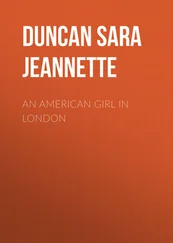Luka’s mother stood in the doorway, arms crossed against the cold.
“Thank you,” Petar said to her.
“Thanks,” I said.
Petar set me down in the backseat next to a small pile of my clothes, schoolbooks, and the spare keys to my flat. My bike, he said, was in the trunk, and I’d be able to ride to school from his house. He’d had to cut my bike lock but had bought a new one, the combination kind, and fiddled with it for a few moments, rolling the number columns beneath his thick thumbs before handing it over to me.
“Do you know how to do this?”
“Not really,” I said.
He looked away. “Me neither.”
Marina was sitting on the curb outside their building, waiting for us. She motioned me to her, and when we hugged I felt her tears on my neck.
“Don’t cry,” I said, which made her cry harder.
“Let’s get you inside,” Petar said. He handed Marina my clothes and carried me into the house.
At Petar and Marina’s grief filled the flat, as present as a fourth person in the room. Every night for a week Petar spoke to me softly, asking what had happened, but it still felt strange to talk, and finally he got so frustrated that he grabbed me by the shoulders and shook. It wasn’t painful, but it was hard enough to scare me, and afterward he backed away apologizing and cradling his bad arm.
“I’m sorry. I just need to know. I can’t not know.”
It hadn’t occurred to me that Petar and Marina were mourning the loss of their best friends, that they felt the same pain I did, and the realization gave me a little courage. I told him about the MediMission office and the roadblock, and how I’d stayed in the valley village. I said nothing of the Safe House, but Petar had his answer and didn’t press me to account for the missing time.
I returned to school and spoke to no one except Luka. He was always serious with me; with only the occasional slip he succeeded in hiding any evidence of joy in the world that had continued on without me. Still, Petar had told my teachers what had happened, and my classmates overheard things in the hallways. Everyone knew. I had my own uncontested turn on the generator bike.
It snowed. But the excitement that normally filled the city in a storm was dulled by air raid smoke and a new set of ration restrictions. Winter had always been my favorite time of year; I loved walking in the Trg drinking mulled wine, eating kielbasa, and talking to the tent vendors selling wood carvings of boats and crucifixes. I loved New Year’s Eve, when people threw Roman candles in the square and shouted songs while I sat on my father’s shoulders. But the holidays had passed unnoticed in the village, and if Zagreb had mustered a celebration that year, any evidence was cleared away by the time I returned. I recall nothing about those January days except the strain of an Epiphany hymn, eerie and minor, repeating on an organ from another time.
—
Petar and Marina took up fighting like a hobby. I’d never seen them this way before, so quick to accuse and attack one another. Petar had stopped going to Mass and Marina went to Mass more. Petar spent hours smoking and on the phone in furtive exchanges, and Marina channeled all her nervous energy into cleaning, scouring specifically, with a focus on tile grout. She’d urge Petar to do something productive, and he’d point to the receiver and turn away, covering his phoneless ear to block her out.
Petar began interrogating me on the finer points of MediMission. I didn’t know much, except that Rahela was at a hospital in Philadelphia especially for children, and that the family taking care of her had been assigned through the program. My parents had never spoken to them, and I didn’t know their names.
“I don’t know anything else,” I said, weary of the conversations.
“Just keep thinking about it. Maybe you’ll remember something that helps.”
“Helps what?”
At night they were sad, which was much worse than the fighting. Marina’s speech was soft and indecipherable, but Petar’s raspy voice traveled easily through our shared wall.
“Bastards. I don’t know what to do.” Marina made a quiet reply, and the bedsprings squeaked. “Fucking hell,” he said, as one of them clicked off the lamp. “What do I even pray for?”
One Saturday, Marina won out and Petar agreed to go to church, “for funeral purposes only.” Besides honoring dead relatives and celebrating holidays, my family didn’t go to church much, especially once Rahela got sick. I had learned the prayers and made my First Communion like nearly everyone I knew, but emotional attachment to the church had always felt just beyond me. Religion, I’d assumed, would make more sense when I grew up.
Marina, Petar, and I went to the Zagreb Katedrala and spent an hour at the back vigil candles, kneeling and clicking rosaries until I’d burned the tips of my thumbs with the cheap matches and bruised my knees on the cold tile floor.
Afterward, we walked to the Trg, where the beginnings of a makeshift memorial were laid out. The Wall was made of red bricks, each one bearing the name of a person killed or disappeared. Already it was hundreds of bricks long. I took a loose block from the pile, scrawled both my parents’ names across it, wanting to keep them together, and added it to the row in progress. Marina had another candle, the votive kind meant to stay lit even outside, and left it there flickering in the dusk.
—
Petar began acting even stranger. He came and left unannounced and when he was home couldn’t sit still, instead paced the kitchen and ran his good hand through his hair. His nervousness reminded me of the year my father bought my mother an expensive necklace for Christmas. He’d also paced the flat for a week, so excited that he eventually broke down and gave it to her three days early. She’d loved it, and when they kissed his face had flushed with her happiness.
Petar’s face did not have this light, and I was increasingly unsettled as it became clear I was the subject of his anxiety. Finally, one night at dinner, while Petar was staring at me and clearing his throat, Marina banged her cup down and pushed her chair back from the table.
“Petar, for chrissakes just tell her already!”
“Tell me what?” I said.
“I don’t want to tell her if I don’t have all the information.”
“Tell me what!”
“We tracked down Rahela and her foster family,” Marina said. “They want to adopt her.”
“What?”
“MediMission didn’t want to tell me where she’d been placed — it’s against the rules — but I found her,” said Petar.
“She was supposed to come back when she was better. She’s my sister.”
“Well,” said Marina. “There may be other options.”
“What do you mean?”
“The foster family said they’d be willing to take you, too, provided we can make arrangements to get you there.”
“Take me?”
“Adopt you, Ana. You could go and live with them and Rahela. In America.”
I felt a rage brewing in my chest. I wanted to hit something and kicked at the bottom bar of my chair. Why were they trying to get rid of me? Dump me with some strangers on another continent?
“Why can’t we just stay here with you? Don’t you want us?”
Petar shook his head. “Do you really think that’s a good idea? To move Rahela, sick, from America back into a fucking war zone?”
“Petar!” said Marina.
I shook my head. I hadn’t thought of it like that. Marina motioned me over, and I went and sat on her lap. She stroked my hair and glared at Petar.
“I think it’s what’s best,” she said. “For Rahela, and for you.”
“I’m sorry for yelling,” Petar said, gentler now. “But I know you’re smart enough to understand. You understand, right?”
Читать дальше












